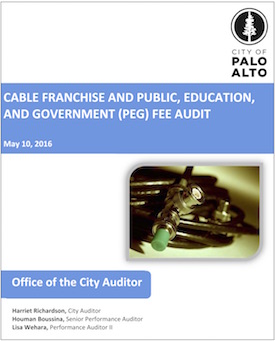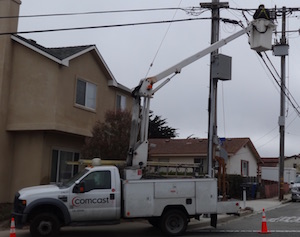FCC set to cut legacy wholesale broadband prices, oversee faster services
![Lars Sørli, Bjerke videregående skole [GFDL (https://www.gnu.org/copyleft/fdl.html) or CC BY-SA 3.0 (https://creativecommons.org/licenses/by-sa/3.0)], via Wikimedia Commons](https://www.tellusventure.com/images/2016/10/splits.jpg)
Competitive split.
There’s a 45 Mbps divide in the wholesale bandwidth business, and the Federal Communications Commission is preparing new and separate regulations to address both sides. It’s one of the three key issues that chairman Tom Wheeler promised the cell phone industry he would address to clear the path for deployment of 5G technology, the other two being spectrum and local restrictions on wireless sites.
In a summary – Wheeler doesn’t release drafts of new rules to the public, preferring instead to limit his conversations to industry stakeholders – he described prices for (mostly) legacy broadband services at 45 Mbps and below as “artificially high” and outlined a plan to first cap current rates and then chop them over time, by as much as 20% in the next the three years alone.… More




![By victoriapeckham (Flickr) [CC BY 2.0 (https://creativecommons.org/licenses/by/2.0)], via Wikimedia Commons](https://www.tellusventure.com/images/2016/10/palm_umbrella.jpg)

![By Massachusetts Dept. of Environmental Protection (Flickr: Lee-train-derail-ethanol3-29-10.b) [CC BY 2.0 (https://creativecommons.org/licenses/by/2.0)], via Wikimedia Commons](https://www.tellusventure.com/images/2016/10/derail.jpg)
![By Jerry Brown [Public domain], via Wikimedia Commons](https://www.tellusventure.com/images/2016/10/jerry_brown_signature.png)
![Lcj at the Polish language Wikipedia [GFDL (https://www.gnu.org/copyleft/fdl.html) or CC-BY-SA-3.0 (https://creativecommons.org/licenses/by-sa/3.0/)], via Wikimedia Commons](https://www.tellusventure.com/images/2016/10/cable_modems.jpg)
